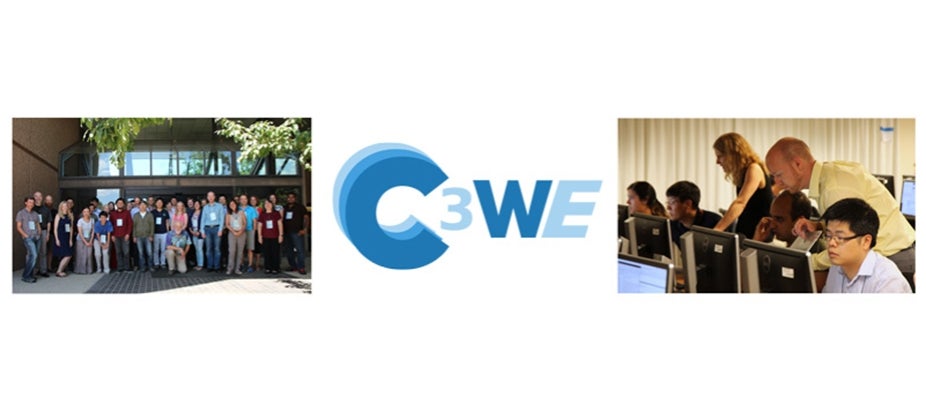Climate & Weather Extremes Tutorial
2019

8:30 am – 4:00 pm MDT
* Due to the uncertainty around the COVID-19 virus, the tutorial for Climate and Weather Extremes for the summer of 2020 have been canceled.
The Climate and Weather Extremes Tutorial provides participants with knowledge and tools to conduct extreme weather research. The tutorial will (i) Provide a broad overview of the physical mechanisms, characteristics and predictability of weather and climate extremes from local to global, and sub-seasonal to multi-decadal scales; (ii) Use the WRF model as an example of a dynamical model that can predict extremes at weather and climate scales; and (iii) Present complementary statistical approaches to modeling extremes.
Tutorial Topics
- Extremes under climate change: State of the science
- Approaches to characterizing and predicting extremes
- Dynamical modeling frameworks for extremes
- Statistical modeling of extremes
- Challenges and advances in convective extremes and hurricanes
- Sources of uncertainty in modeling climate and weather extremes
The summer WRF Tutorial includes the Basic WRF Tutorial (July 15-19), the WRF Data Assimilation (DA) Tutorial (July 22-24), and the Climate and Weather Extremes Tutorial (July 25-26). Participants may choose to attend just one of the tutorials, or any combination of the three tutorials offered.
Information specific to the Climate and Weather Extremes Tutorial is detailed below.
Payment
- Deadline: June 17, 2019
- All Universities, U.S. Government, and NCAR/UCAR: $200
- Private Industry and Foreign Government: $300
Requirements
Participants should have basic knowledge of atmospheric science, some experience with accessing and manipulating data using common programming languages (e.g., NCL, R, etc), and working in a Unix computer environment. All participants are strongly encouraged to get familiar with Unix/Linux working environment, as working through directories, editing text files and running scripts are essential skills for a successful tutorial experience. One can easily find unix tutorial for beginners online for this purpose. The tutorial will not include the running of NCAR’s Weather Research and Forecasting (WRF) model, but a basic understanding of WRF or a regional climate model would be beneficial.
For the laboratory components of the Tutorial, students will use free programing languages such as the NCAR Command Language (NCL), and the statistical software package R. Although classroom computers will be available, participants are encouraged to use their own laptops; if you don't already have the free statistical software R installed, you can find it here: R Studio is a convenient front-end for R, which you can find here.
Participants are encouraged to get familiar with this software before attending. Some introductory tutorials are available on both the r-project and R Studio websites. Labs will center around data available at NCAR, however participants are welcome to bring their own data to apply the techniques learned during the labs.
Available Spaces
Due to the constraints of physical space and computers, we can only accommodate a maximum of 30 participants for the Regional Climate tutorial. Register early, as registration always exceeds capacity! Once all seats are filled, a wait list will be established and registrant status will remain as pending unless a seat becomes available.
Instructor Bios
Dr. Cindy Bruyère is the C3WE Director. Her background is meteorology and Environmental Management. She has a strong dynamical modeling background and was a WRF model developer and instructor before joining C3WE.
Dr. James Done is research lead for C3WE. He brings physical science expertise to collaborations with economists and the reinsurance industry to understand the drivers of weather and climate impacts.
Abby Jaye specializes in regional climate modeling and data manipulation and visualization. She will be giving the "Evaluating and validating extremes in climate models" session and lab.
Dr. Andreas Prein is a Project Scientist in C3WE whose research focuses on the importance of mesoscale processes in the climate system and their impacts on society. He will give a talk on advances and challenges in convective extremes.
Dr. Erin Towler is a Project Scientist in C3WE whose research goal is to make regional climate risks relevant to local water and natural resources management. She will lead the statistical modeling frameworks for extremes session.
Dr. Mari Tye’s focus is on extreme value statistics and translating cutting edge-science into useable information for designers and decision makers.